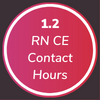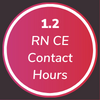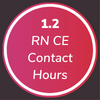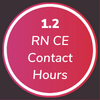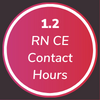
Catalog Advanced Search
176 Results
-
Includes a Live Web Event on 07/18/2024 at 11:00 AM (PDT)
Attendees will learn how one organization was able to leverage organizational initiatives to drive meaningful change.
Description:
Date: July 18, 2024
Time: 2:00 - 3:00 pm ET / 11:00 am - 12:00 pm PT
In anticipation of Sepsis Awareness Month in September, this presentation will showcase innovative strategies for promoting sepsis awareness, quality improvement, and patient safety within healthcare teams during Sepsis Awareness Month and year-round. Attendees will learn how one organization was able to leverage organizational initiatives to drive meaningful change. Through unique and engaging awareness and advocacy efforts that promoted collaboration with key stakeholders and leaned into the power of community partnerships to coordinate inter-disciplinary efforts, this team built a successful advocacy campaign.
Utilizing available resources to plan and execute impactful sepsis awareness events that promote continuous improvement and patient safety will also be shared. Whether you’re a healthcare professional, administrator, or advocate, this presentation will equip you with the knowledge and tools needed to make a difference during Sepsis Awareness Month and in the fight against sepsis year-round. Get started now with Sepsis Alliance's Sepsis Awareness Month resources at SepsisAwarenessMonth.org.
Learning Objectives:
At the end of the activity, the learner should be able to:
- List organizational initiatives that can be used to promote sepsis awareness, quality improvement, and patient safety in a healthcare team;
- Identify ways to collaborate with key stakeholders in healthcare advocacy events;
- Describe how to use available resources to plan a successful sepsis advocacy and awareness event that promotes continuous improvement.
Target Audience:
Nurses, advanced practice providers, physicians, emergency responders, pharmacists, medical technologists, respiratory therapists, physical/occupational therapists, infection prevention specialists, data/quality specialists, and more.
Webinar Supporters:
Sepsis Alliance gratefully acknowledges the support provided for this webinar by the Sepsis Alliance Institute sponsors.


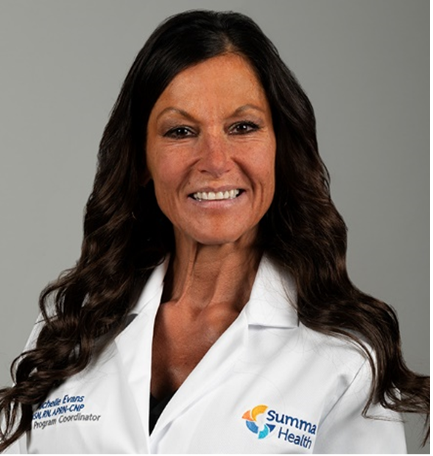
Michelle Evans, MSN, RN, APRN, NP-C
APP Sepsis Program Coordinator
Summa Health
Michelle Evans, MSN, RN, APRN, NP-C, obtained her ADN in 1999 and BSN in 2007, both from Walsh University. She earned her Masters as an Advanced Practice Nurse in 2010 from Malone University and is board-certified through the ANCC as a Family Nurse Practitioner. Her clinical background is in Critical Care/Rapid Response and Hospitalist Medicine. Michelle discovered her passion for sepsis care while serving as the Intensivist Program Coordinator for Aultman Hospital from 2002-2009. She has been the Sepsis Program Coordinator for Summa Health System in Akron since January 2021. Michelle resides in Canton, Ohio, with her husband Dave, and has three adult sons.
Provider approved by the California Board of Registered Nursing, Provider Number CEP17068 for 1.2 contact hours.
Other healthcare professionals will receive a certificate of attendance for 1.0 contact hour.
Medical Disclaimer
The information on or available through this site is intended for educational purposes only. Sepsis Alliance does not represent or guarantee that information on or available through this site is applicable to any specific patient’s care or treatment. The educational content on or available through this site does not constitute medical advice from a physician and is not to be used as a substitute for treatment or advice from a practicing physician or other healthcare professional. Sepsis Alliance recommends users consult their physician or healthcare professional regarding any questions about whether the information on or available through this site might apply to their individual treatment or care.
-
Includes a Live Web Event on 06/14/2024 at 11:00 AM (PDT)
Learn how one organization created a unique QI initiative to promote peer-to-peer learning by collaboratively learning from defects, discovering barriers, and creating action plans.
Description:
Date: June 14, 2024
Time: 2:00 - 3:00 pm ET / 11:00 am - 12:00 pm PT
Continuous quality improvement (QI) is at the heart of good patient care and working toward improved patient outcomes for those affected by infections and sepsis. At University Hospitals, a unique QI initiative was created to promote peer-to-peer learning by collaboratively learning from defects, discovering barriers, and creating action plans. Details on how the QI project was launched alongside the real-world examples of peer-to-peer sepsis quality improvement initiatives in action will be shared by the team at University Hospitals. Attendees will gain insight into the essential components of such initiatives, including setting objectives and key results, and discover how they drive measurable improvements in patient care.
Learning Objectives:
At the end of the activity, the learner should be able to:
- Articulate the components of a peer-to-peer quality improvement (QI) initiative;
- Identify objectives and key results as part of a QI project;
- Describe the process of learning from defects.
Target Audience:
Nurses, advanced practice providers, physicians, emergency responders, pharmacists, medical technologists, respiratory therapists, physical/occupational therapists, infection prevention specialists, data/quality specialists, and more.
Webinar Supporters:
Sepsis Alliance gratefully acknowledges the support provided for this webinar by the Sepsis Alliance Institute sponsors.



Peter Pronovost, MD, PhD, FCCM
Chief Quality & Clinical Transformation Officer; Veale Distinguished Chair in Leadership and Clinical Transformation
University Hospitals
Peter Pronovost, MD, PhD, FCCM, is a world-renowned patient safety champion, physician executive, critical care physician, and prolific researcher with more than 1,000 peer-reviewed publications. He is also an innovator who has founded several technology companies and a thought leader informing U.S. and global health policy.
Dr. Pronovost’s transformative work leveraging checklists to reduce central line-associated bloodstream infections has saved thousands of lives and earned him national acclaim. This life-saving intervention has been implemented across the U.S., and as a result, central line-associated infections that used to kill as many people as breast or prostate cancer have been reduced by 80 percent. In recognition of this innovation, his highest-profile accolades include being named one of the 100 most influential people in the world by Time Magazine and receiving a coveted MacArthur Foundation “genius grant.”
While serving as Chief Clinical Transformation Officer at University Hospitals Health System in Cleveland and as a Professor in the Schools of Medicine, Nursing, and Management at Case Western Reserve University, Dr. Pronovost developed a checklist to make visible defects in value and deployed a management and accountability system to eliminate those defects. This system reduced the annual cost of care for Medicare patients by 30% over three years while improving quality. In 2022, Dr. Pronovost lead the efforts that culminated in University Hospitals winning the American Hospital Association’s Quest for Quality award, the industry’s most prestigious honor recognizing its member organizations for their commitment to quality. He was named the Veale Distinguished Chair in Leadership and Clinical Transformation in 2023.
Along with the deputy secretary of Health and Human Services (HHS), Dr. Pronovost co-chaired the Healthcare Quality Summit, an initiative created in response to President Trump’s White House Executive Order to modernize and improve quality measures for HHS, Veterans Affairs and Department of Defense. Dr. Pronovost also serves as a member of the Presidents Council for Science and Technology Patient Safety Working Group that is producing recommendations for improving safety to President Biden.
Dr. Pronovost previously served as Johns Hopkins Medicine Senior Vice President for Patient Safety and Quality and was the founder and director of the Johns Hopkins Medicine Armstrong Institute for Patient Safety and Quality. He also served as the Senior Vice President for Clinical Strategy and Chief Medical Officer for UnitedHealthcare.
Dr. Pronovost was elected to the National Academy of Medicine in 2011, to the American Academy of Nursing, and has received multiple honorary degrees. He is an advisor to the World Health Organization’s World Alliance for Patient Safety and regularly addresses the U.S. Congress on patient safety issues. He is a founder of VisICU, a tele ICU company purchased by Philips; and Doctella, a health information platform for remote patient monitoring purchased by Masimo. He is a strategic advisor for several healthcare technology and venture capital companies. Today, he is known as one of the most influential executives and physician leaders in healthcare and one of the Top 25 innovators in healthcare.
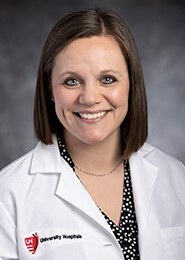
Sarah Knowles, DNP, APRN, ACCNS-AG, GERO-BC, WCC
Principal Project Manager, Quality Institute; Co-Chair Research and Innovation Council; UH Well-Being Ambassador
University Hospitals Cleveland Medical Center
Sarah Knowles, DNP, APRN, ACCNS-AG, GERO-BC, WCC, has worked at University Hospitals since 2006 and is currently a Principal Project Manager in the Quality Institute. In her grant funded role she has overseen the development and implementation of two system wide quality improvement initiatives – Learning from Defects (LFDs) and Peer to Peer Learning (P2P). Through the creation of these two programs, she has demonstrated her ability to lead groups of various sizes through change as they strive towards both process and practice improvement. Dr. Knowles has a long tenure of working with nurses at all levels in professional development activities. She is a respected clinical nurse specialist specializing in the adult and geriatric populations. Her research has focused on staff nurse acceptance and use of continuous vital signs monitoring (CVSM). She holds certifications as an adult/gero clinical nurse specialist in wellness through acute care, gerontological nursing, and wound care.
Dr. Knowles received her BSN from the University of Toledo, her MSN with a focus in Nursing Education from Cleveland State University, her post master’s certificate as a clinical nurse specialist from Kent State University, and her DNP from Ursuline College.
Provider approved by the California Board of Registered Nursing, Provider Number CEP17068 for 1.2 contact hours.
Other healthcare professionals will receive a certificate of attendance for 1.0 contact hour.
Medical Disclaimer
The information on or available through this site is intended for educational purposes only. Sepsis Alliance does not represent or guarantee that information on or available through this site is applicable to any specific patient’s care or treatment. The educational content on or available through this site does not constitute medical advice from a physician and is not to be used as a substitute for treatment or advice from a practicing physician or other healthcare professional. Sepsis Alliance recommends users consult their physician or healthcare professional regarding any questions about whether the information on or available through this site might apply to their individual treatment or care.
-
Includes a Live Web Event on 05/30/2024 at 11:00 AM (PDT)
bioMérieux Sponsored Webinar: The Impact of Rapid Diagnostics on Antimicrobial Stewardship Practices
Content provided by bioMérieux (No CE credits offered)
Webinar Description:
This sponsored webinar will explore the history of Antimicrobial Susceptibility Testing (AST) and what the future of patient care and antimicrobial stewardship could look like with fast AST. The presenter will discuss the limitations of traditional AST methods, which often lead to delays, the overuse of broad-spectrum antibiotics, and the rise of antimicrobial resistance. He will then highlight how fast AST and rapid diagnostics can empower stewardship efforts by providing actionable results within hours.
No CE credits are offered for this sponsored webinar. Content was determined by the sponsor.
Webinar Sponsor:
Sepsis Alliance gratefully acknowledges the support provided by bioMérieux for this sponsored webinar.


Jeffrey J. Cies, PharmD, MPH, BCPS-AQ ID, BCPPS, FCCP, FCCM, FPPA
Senior Medical Science Liaison
bioMérieux
Jeffrey J. Cies, PharmD, MPH, BCPS-AQ ID, BCPPS, FCCP, FCCM, FPPA, is a pediatric critical care and infectious diseases pharmacist with almost two decades of experience, both at the bedside and conducting clinical research in pediatric pharmacotherapy and pharmacokinetics. His research focused on describing the pharmacokinetic and pharmacodynamic changes in the pediatric ICU with a special focus on extra-corporeal therapies. Dr. Cies now serves as a senior medical science liaison for bioMerieux.
-
Includes a Live Web Event on 05/16/2024 at 9:00 AM (PDT)
This live, virtual event, scheduled for May 16, 2024, will cover critical topics related to sepsis in maternal and neonatal patients, offering attendees the most up-to-date clinical knowledge and treatment recommendations for these populations.
Description:
Date: May 16, 2024
Time: 12:00 - 4:00 pm ET / 9:00 am - 1:00 pm PT
Sepsis, an indiscriminate threat that can strike anyone regardless of their health status or age, tends to disproportionately affect certain populations. Pregnant individuals and newborns are among those at higher risk of sepsis-related complications. Sepsis accounts for at least 261,000 maternal deaths each year worldwide, accounting for approximately 11% of all maternal deaths. Across the U.S. between 2017-2019, 14.3% of pregnancy-related deaths were due to infection or sepsis. Maternal sepsis ranks as the second leading cause of maternal fatalities, and globally sepsis is the number one cause of mortality in newborns and young infants.
Maternal sepsis typically occurs when an infection takes hold in the aftermath of childbirth, whether it be at the site of a C-section incision, a tear, or another postpartum wound, occurring in the days or weeks following delivery. Any infection, such as Strep B, pneumonia, or a urinary tract infection, occurring during pregnancy or in the postpartum period, can also potentially escalate into sepsis. Infections can be passed from the birthing parent to child during pregnancy, labor, and delivery, putting the infant also at risk for developing sepsis.
It is imperative that healthcare professionals understand the unique risks that maternal and neonatal patients have regarding sepsis to efficiently and accurately assess and diagnose sepsis.
To address this issue, Sepsis Alliance is hosting the 2024 Sepsis Alliance Symposium: Maternal and Neonatal Sepsis. This live, virtual event, scheduled for May 16, 2024, will cover critical topics related to sepsis in maternal and neonatal patients, offering attendees the most up-to-date clinical knowledge and treatment recommendations for these populations. The key outcome of this half-day event is to establish the burden of sepsis in maternal and neonatal patients and improve clinical outcomes for patients affected by sepsis.
Covered topics will include:
- Perinatal outcomes in patients with sepsis during pregnancy;
- Improving maternal equity, health outcomes related to infections and sepsis, and antimicrobial stewardship through health policy;
- Clinical diagnosis and management of neonatal sepsis;
- Discharge and transitions of care for birthing parents and newborns.
Learning Objectives:
At the end of the activity, the learner should be able to:
- Identify the unique risks and burden of sepsis in pregnancy and newborns;
- Summarize the steps to recognizing sepsis in maternal patients and newborns;
- Restate how health policies can be used to improve maternal equity and patient outcomes;
- Summarize the relationship between healthy equity and maternal and neonatal outcomes and sepsis.
Target Audience:
Nurses, advanced practice providers, physicians, emergency responders, pharmacists, medical technologists, respiratory therapists, physical/occupational therapists, infection prevention specialists, data/quality specialists, and more.
Symposium Supporter:
Sepsis Alliance gratefully acknowledges the support provided for this symposium by Ohio Hospital Association.

Provider approved by the California Board of Registered Nursing, Provider Number CEP17068 for 3.6 contact hours.
Other healthcare professionals will receive a certificate of attendance for 3.0 contact hours.
Medical Disclaimer
The information on or available through this site is intended for educational purposes only. Sepsis Alliance does not represent or guarantee that information on or available through this site is applicable to any specific patient’s care or treatment. The educational content on or available through this site does not constitute medical advice from a physician and is not to be used as a substitute for treatment or advice from a practicing physician or other healthcare professional. Sepsis Alliance recommends users consult their physician or healthcare professional regarding any questions about whether the information on or available through this site might apply to their individual treatment or care.
-
Includes a Live Web Event on 04/30/2024 at 11:00 AM (PDT)
Content provided by Beckman Coulter (No CE credits offered)
Webinar Description:
In this follow-up to the 2023 webinar, sponsored by Beckman Coulter, take a deeper dive into the CBC test results with a special focus on the white blood cells and differential. Uncover hidden gems and learn about clues pointing to sepsis recognition in order to provide the right care to the right patient at the right time. This sponsored webinar will focus on understanding novel components of the CBC with Diff and the Monocyte Distribution Width (MDW) marker for determining the severity of infection.
No CE credits are offered for this Sponsor Innovation Webinar.
Webinar Sponsor:
Sepsis Alliance gratefully acknowledges the support provided by Beckman Coulter for this Sponsor Innovation Webinar.
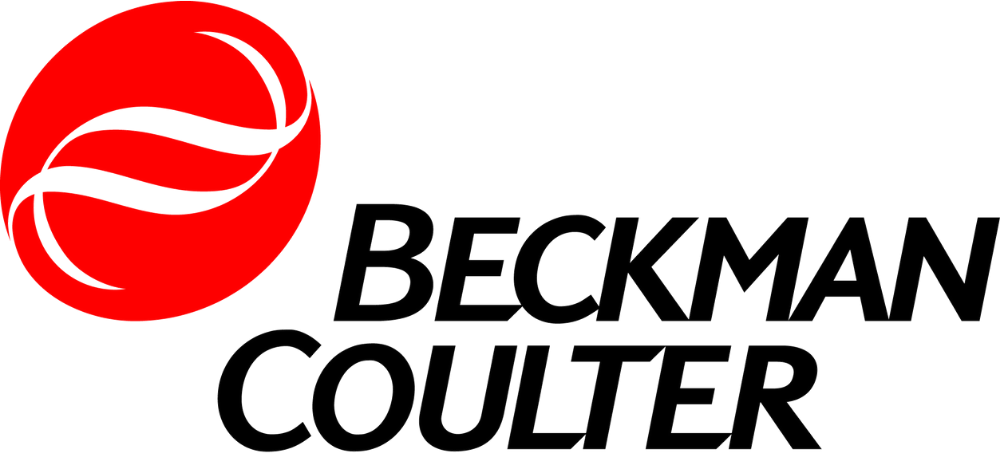
Kathleen M. Vollman, MSN, RN, CCNS, FCCM, FCNS, FAAN
Clinical Nurse Specialist/Consultant
ADVANCING NURSING, LLC
Kathleen M. Vollman, MSN, RN, CCNS, FCCM, FCNS, FAAN, is a critical care clinical nurse specialist and consultant. She has published and lectured nationally and internationally on a variety of pulmonary, critical care, work culture, and sepsis topics, as well as on prevention of health care acquired injuries, including pressure injury and CAUTIs/CLALBSIs and other HAIs. She serves as a subject matter expert on these topics for the American Hospital Association and Michigan Hospital Association. From 1989 to 2003, she functioned in the role of Clinical Nurse Specialist for the Medical ICUs at Henry Ford Hospital in Detroit, Michigan. Currently her company, ADVANCING NURSING LLC, is focused on creating empowered work environments for healthcare practitioners through the acquisition of better skills, attainment of greater knowledge, and implementation of process improvement.
-
Includes a Live Web Event on 04/24/2024 at 11:00 AM (PDT)
An international task force sponsored by the Society of Critical Care Medicine (SCCM) recently released the new definitions for sepsis and septic shock in children, the Phoenix sepsis criteria. The evolution of pediatric sepsis criteria and the introduction of the Phoenix sepsis criteria will be presented in this webinar.
Description:
Date: April 24, 2024
Time: 2:00 - 3:00 pm ET / 11:00 am - 12:00 pm PT
Sepsis is a life-threatening condition and globally is one of the leading causes of death in children. An international task force sponsored by the Society of Critical Care Medicine (SCCM) recently released the new definitions for sepsis and septic shock in children, the Phoenix sepsis criteria. The evolution of pediatric sepsis criteria and the introduction of the Phoenix sepsis criteria will be presented in this webinar.
The research methodology behind the Phoenix criteria for sepsis and septic shock, drawing insights from an extensive international data analysis using machine learning approaches and validation across diverse clinical settings, will also be presented. Attendees will gain valuable insights into the potential implications of implementing the Phoenix sepsis criteria in clinical practice, including its role in facilitating clinical management, quality benchmarking, epidemiological surveillance, and research.
Learning Objectives:
At the end of the activity, the learner should be able to:
- Describe the evolution of the pediatric sepsis criteria and the development of the Phoenix sepsis criteria through a three-pronged effort by the SCCM Pediatric Sepsis Definition Task Force;
- Identify the key differences between the previous pediatric sepsis criteria and the updated Phoenix sepsis criteria;
- Enumerate the implications of implementing the Phoenix sepsis criteria in clinical practice, including its potential impact on clinical management, quality benchmarking, epidemiological surveillance, and research.
Target Audience:
Nurses, advanced practice providers, physicians, emergency responders, pharmacists, medical technologists, respiratory therapists, physical/occupational therapists, infection prevention specialists, data/quality specialists, and more.
Webinar Supporters:
Sepsis Alliance gratefully acknowledges the support provided for this webinar by the Sepsis Alliance Institute sponsors.



L. Nelson Sanchez-Pinto, MD, MBI, FAMIA
Associate Professor, Pediatrics (Critical Care) & Preventive Medicine (Health & Biomedical Informatics)
Northwestern University – Feinberg School of Medicine
L. Nelson Sanchez-Pinto, MD, MBI, FAMIA, is a pediatric critical care physician, biomedical informatics specialist, and data science researcher at Northwestern University Feinberg School of Medicine and Ann & Robert H. Lurie Children's Hospital of Chicago. His research focuses on applying data science and artificial intelligence approaches to improve the care provided to acutely ill patients, with a particular focus on pediatric sepsis.
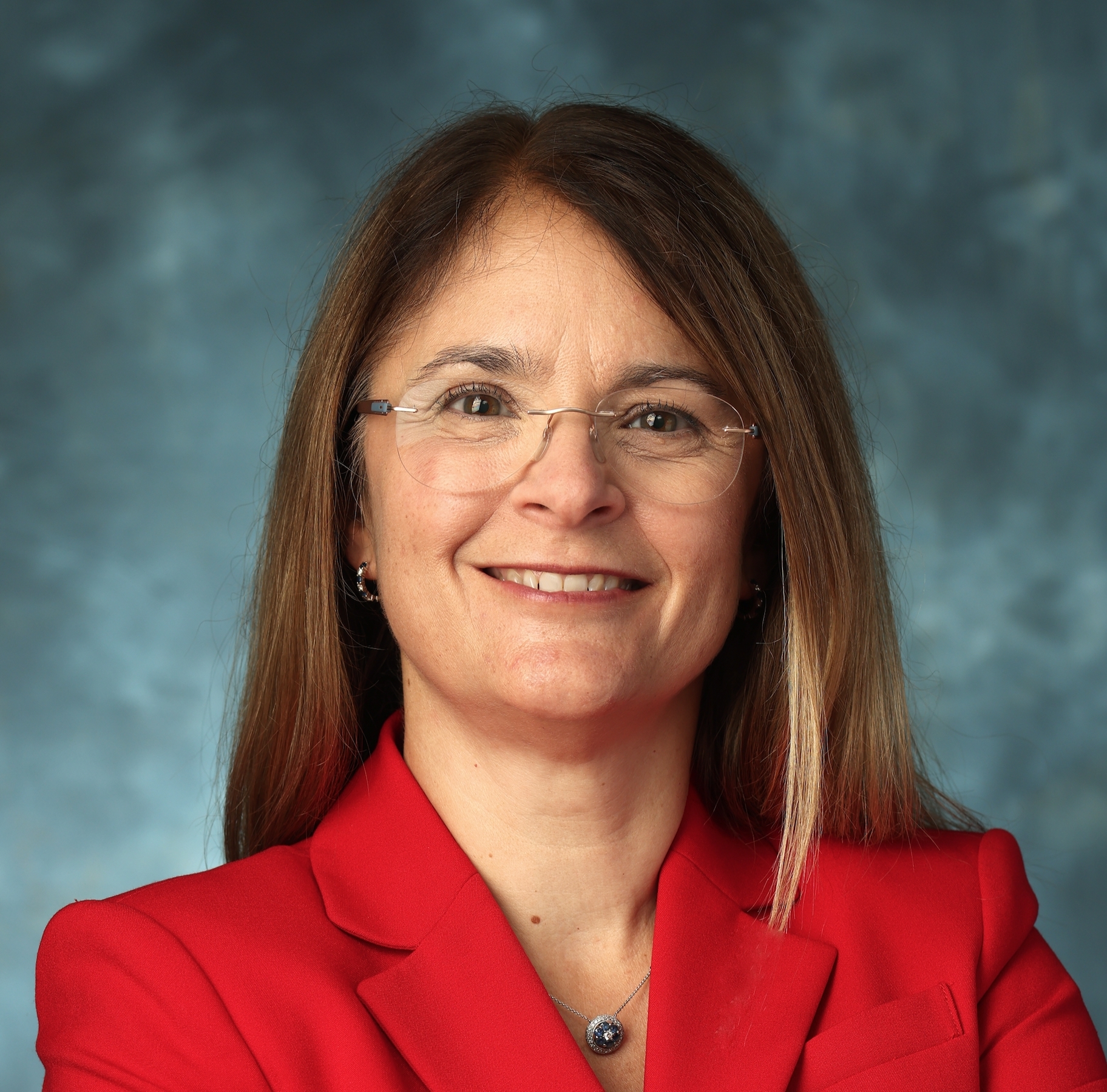
Lauren Sorce, PhD, APRN-NP, CPNP, AC/PC, FCCM
Founder's Board Nurse Scientist; Senior Scientist, Division of Pediatric Critical Care; Associate Director of Nursing Research, Department of Nursing
Ann & Robert H. Lurie Children’s Hospital of Chicago
Lauren R. Sorce, PhD, RN, CPNP-AC/PC, FAAN, FCCM, is the senior scientist in the Division of Pediatric Critical Care Medicine and Associate Director for Nursing Research in the Department of Nursing at Ann & Robert H. Lurie Children’s Hospital of Chicago, where she also practices as a pediatric critical care nurse practitioner. She is an assistant professor at Northwestern University Feinberg School of Medicine. She trained as a pediatric clinical nurse specialist at Loyola University, followed by a post-masters pediatric nurse practitioner certificate and PhD from Rush University.
Dr. Sorce’s key contribution to critical care has been her extensive leadership as an advanced practice registered nurse (APRN). Starting her career as an APRN in the PICU early in the evolution of the role provided her many opportunities. She was instrumental in the exploration of the first acute care pediatric nurse practitioner (ACPNP) certification examination as well as the development of the first national certifying examination for the Pediatric Nursing Certification Board. Dr. Sorce also served as the vice-president of nursing on the board of directors of the World Federation of Pediatric Intensive and Critical Care Societies. She has served in leadership roles on numerous local and international committees as well as participating on editorial boards.
Dr. Sorce has served the Society of Critical Care Medicine (SCCM) in many capacities since joining in 1998. Prior to her role on Council, Dr. Sorce was recognized with numerous Presidential Citations, the Norma J. Shoemaker Research Grant, and the Norma J. Shoemaker Award for Nursing Excellence. In addition to nine years on the SCCM Council, she has been a member of the Congress Program Planning Committee and cochaired the 2015 Congress. She chaired the SCCM Strategic Planning Committee, Finance Committee, and Norma J. Shoemaker Research Grant Committee and served as the 2019 editor of SCCM’s newsmagazine, Critical Connections. Dr. Sorce has been funded to study corneal abrasions and has worked on numerous research teams to study post-intensive care syndrome, stress hydrocortisone in pediatric septic shock, prone positioning in pediatric acute respiratory distress syndrome, and criteria for convening family conferences in the PICU.
Provider approved by the California Board of Registered Nursing, Provider Number CEP17068 for 1.2 contact hours.
Other healthcare professionals will receive a certificate of attendance for 1.0 contact hours.
Medical Disclaimer
The information on or available through this site is intended for educational purposes only. Sepsis Alliance does not represent or guarantee that information on or available through this site is applicable to any specific patient’s care or treatment. The educational content on or available through this site does not constitute medical advice from a physician and is not to be used as a substitute for treatment or advice from a practicing physician or other healthcare professional. Sepsis Alliance recommends users consult their physician or healthcare professional regarding any questions about whether the information on or available through this site might apply to their individual treatment or care.
-
Sepsis Alliance’s 2023 publication, The Healthcare C-Suite AMR Market Report found that only 26% of U.S. healthcare leaders grade themselves an ‘A’ on their hospital or health system’s antimicrobial resistance (AMR) efforts. The Sepsis Alliance AMR Conference aims to provide the tools and knowledge to improve these AMR efforts.
Description
Sepsis Alliance’s 2023 publication, The Healthcare C-Suite AMR Market Report found that only 26% of U.S. healthcare leaders grade themselves an ‘A’ on their hospital or health system’s antimicrobial resistance (AMR) efforts. The Sepsis Alliance AMR Conference aims to provide the tools and knowledge to improve these AMR efforts.
Sepsis and the emergence of antimicrobial resistance (AMR) are intricately intertwined and pose significant challenges. Primary reliance on broad-spectrum antimicrobials is often the initial approach in sepsis treatment, yet, curbing unnecessary antimicrobial use is imperative in combating the escalating threat of AMR.
As AMR intensifies, the likelihood of infections progressing to sepsis increases, rendering sepsis cases progressively more resistant to treatment and consequently subjecting patients to adverse outcomes such as amputations and fatalities. Effectively managing this intricate clinical interplay, addressing the global AMR threat, and enhancing future outcomes necessitate collaborative efforts across sectors, ongoing innovation, and educational initiatives.
Opportunities for AMR education for clinicians, caregivers, patients, and the public are viewed by 77% of healthcare executives as necessary for combating AMR. Participation in the Sepsis Alliance AMR Conference offers a unique opportunity for attendees to explore innovative ideas, gain inspiration, and learn about practical technologies to manage sepsis and counteract the expanding challenge of antimicrobial resistance.
Topics covered will include:
- A One Health approach to combating AMR;
- Maternal and pediatric AMR;
- AMR in ambulatory and outpatient settings;
- The role of Sepsis Teams in AMS.
Learning Objectives:
At the conclusion of this event, learners will be able to:
- Explain the intricate link between sepsis and antimicrobial resistance;
- Identify tools and resources to champion responsible antimicrobial prescribing practices;
- Describe the pivotal role of healthcare executives and leadership in prioritizing, endorsing, and advancing stewardship efforts addressing antimicrobial resistance and sepsis;
- Restate methods for leadership to actively pursue inventive approaches that engage healthcare providers in initiatives aimed at tackling antimicrobial resistance and enhancing sepsis management.
FREE Nursing CE Credits Offered!
Continuing nursing education credits will be available, as will post-event access to resources, ideas, and innovations to improve sepsis care and antimicrobial stewardship. Sepsis Alliance is a Provider approved by the California Board of Registered Nursing for 9.7 contact hours, Provider Number CEP17068.
Conference Supporters:
Sepsis Alliance gratefully acknowledges the support provided for this conference by the following sponsors:
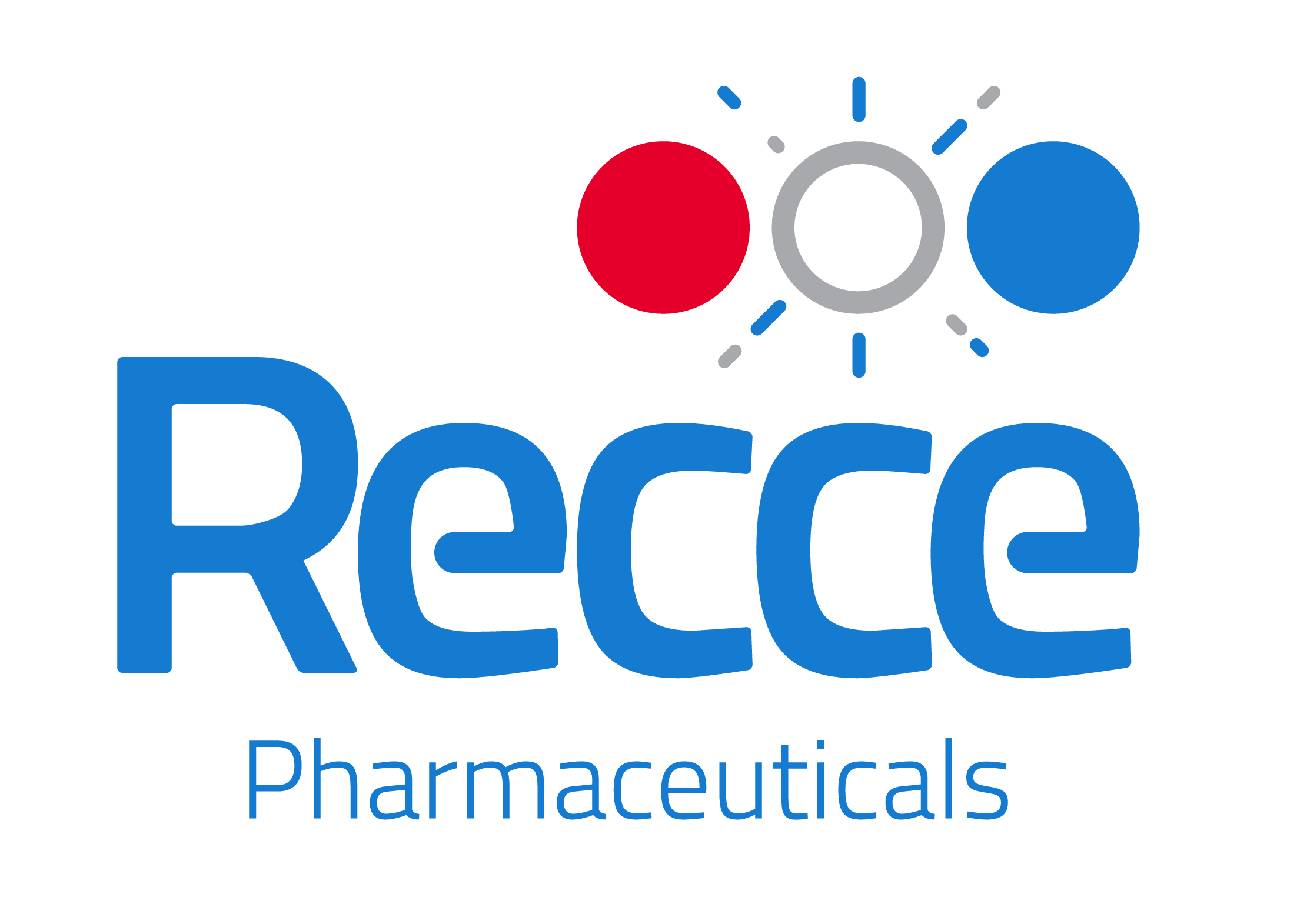

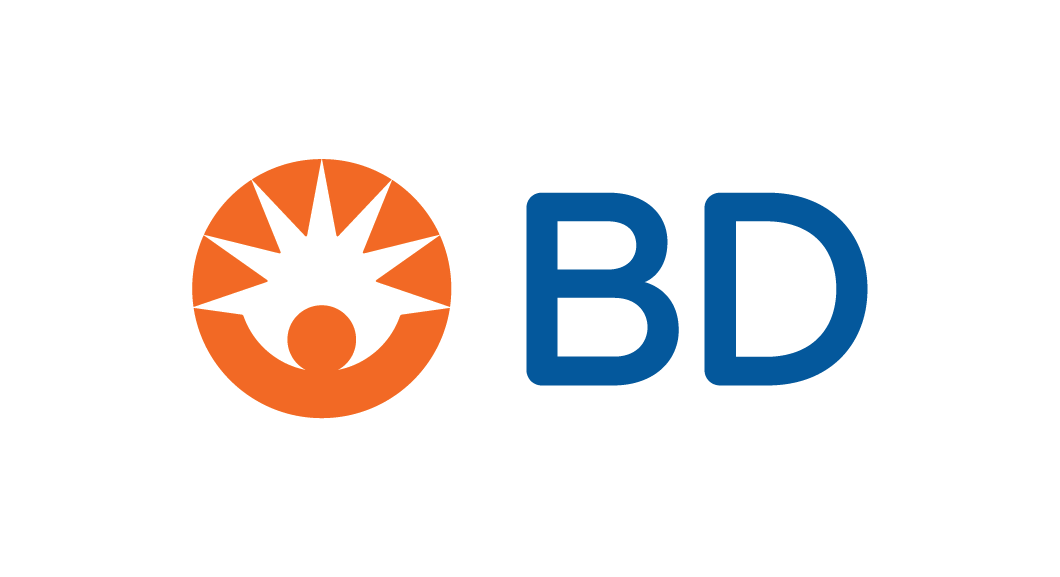


Agenda
April 10, 2024
Time (ET) Session Title Presenter 10:00-10:25 Opening Remarks 10:30-11:05 Keynote: AMR and One Health Through the Lens of Animal and Human Health (CE Session) Jason G. Newland, MD, MEd
Pediatric Infectious Diseases
Washington University in St. Louis
Paul J. Plummer, DVM, PhD, DACIVIM(LAIM) DECSRHM
Executive Director
National Institute of Antimicrobial Resistance Research and Education (NIAMRRE)11:10-11:45 One Health in Action: Minnesota’s Collaborative Approach to Antibiotic Stewardship (CE Session) Kristen Clark, DVM, MPH, DACVPM, CCRT
Director, Minnesota One Health Antibiotic Stewardship Collaborative, Minnesota Department of Health11:50-12:20 Recce Pharmaceuticals Sponsored Session: Beyond Existing Antibiotics: Finding a Solution to AMR and Sepsis James Graham
Managing Director & Chief Executive Officer, Recce Pharmaceuticals12:20-12:30 Break 12:30-1:00 Superbugged: A Personal Perspective (CE Session) Steffanie Strathdee, PhD
Associate Dean of Global Health Sciences, UCSD Department of Medicine
Thomas Patterson, PhD
Professor of Psychiatry, University of California, San Diego1:05-1:45 Antibiotic Stewardship at Hospital Discharge (CE Session) Emily Sydnor Spivak, MD, MHS, FIDSA, FSHEA
Associate Professor of Medicine, Division of Infectious Diseases University of Utah School of Medicine1:45-2:15 bioMérieux Sponsored Session: Protecting Our Future: Preventing & Treating Sepsis in a World of Drug-Resistant Infections Amanda L. Suchanek, Ph.D.
Medical Advisor, US Medical Affairs
bioMérieux2:15-2:25 Break 2:25-3:00 The Epidemiology of Antimicrobial Resistant Bacteria in the Pediatric Population (CE Session) Rachel Medernach, MD, MSCI
Assistant Professor
Rush University Medical Center3:05-3:45
CDC Core Elements of Hospital Antibiotic Stewardship and Hospital Sepsis Programs: What Nurses Need to Know and Do (CE Session)Mary Lou Manning, PhD, CRNP, CIC, FAPIC, FSHEA, FAAN
Professor
Thomas Jefferson University3:20-3:35
Sponsor Session (Details Coming Soon)3:45-4:25 Antimicrobial Stewardship: Important to All (CE Session) Alyssa R. Letourneau, MD, MPH, FIDSA
Assistant Professor of Medicine
Harvard Medical School4:25-4:30 Closing Remarks April 11, 2024
-
Recorded On: 03/27/2024
Content provided by Baxter (No CE credits offered)
Webinar Description:
In this sponsored webinar, Morgan Swearingin, MSN-Ed, RN, CCRN, will discuss the process and experience of creating nurse-driven protocols for SEP-1 interventions and fluid management from the perspective of a bedside nurse and clinical educator. Morgan will explore navigating potential barriers to implementing a successful program. Then, she will conversely highlight breakthroughs and improvements in sepsis care and nursing competence at her institution after implementing nurse-driven protocols and targeted education.
No CE credits are offered for this sponsored webinar. Content was determined by the sponsor.
Webinar Sponsor:
Sepsis Alliance gratefully acknowledges the support provided by Baxter for this sponsored webinar.

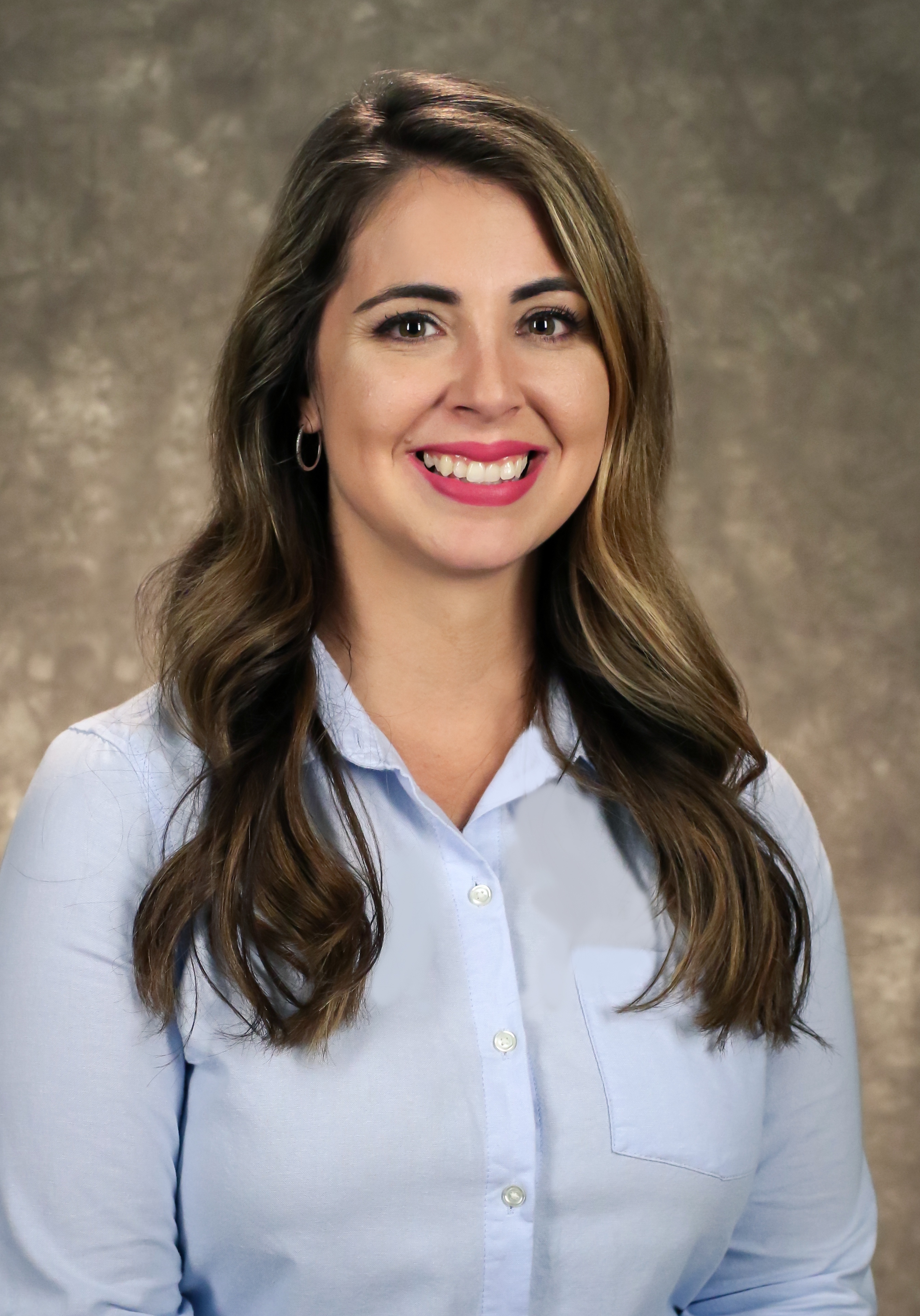
Morgan Swearingin, MSN-Ed, RN, CCRN
Critical Care Clinical Education Specialist
North Kansas City Hospital
Morgan Swearingin, MSN-Ed, RN, CCRN, is a critical care clinical education specialist at North Kansas City Hospital. Morgan has served in this role for the past 3.5 years, with close to 15 years total of experience in acute care nursing. She graduated in 2009 with an Associate of Science in Nursing (ASN) degree from Hannibal-LaGrange University, and then in 2014 she achieved a Master of Science in Nursing (MSN) degree with an emphasis in Nursing Education from Walden University. Morgan is certified as a critical care registered nurse (CCRN) through the American Association of Critical Care Nurses (AACN), and is notably involved in her local AACN chapter, serving currently as the chapter president of the board of directors. Morgan is passionate about empowering direct care nurses through equipping them with knowledge, competence, and awareness around sepsis identification and management.
-
Recorded On: 03/21/2024
In the second part of this 2-part series focusing on sepsis education and prevention for school-based healthcare professionals, we'll explore the crucial role of school-based healthcare professionals in recognizing the high risk for sepsis in children, including knowing the key signs and symptoms requiring escalation in care to either a PCP or emergency departments.
Description:
Sepsis affects more than 50 million people worldwide each year, and almost half are children. Although sepsis is the major cause of death within hospitals, up to 87% of sepsis cases originate in the community before patients are admitted. Any number of infections can trigger sepsis in school-aged children. In the second part of this 2-part series focusing on sepsis education and prevention for school-based healthcare professionals, we'll explore the crucial role of school-based healthcare professionals in recognizing the high risk for sepsis in children, including knowing the key signs and symptoms requiring escalation in care to either a PCP or emergency departments. We’ll also cover how to support children who have experienced sepsis. Attendees will learn practical strategies to identify and address time-sensitive clinical deterioration from sepsis, as well as how to best support the lingering effects of post-sepsis syndrome in students, to avoid unnecessary returns to the hospital and potential frequent readmissions.
Learning Objectives:
At the end of the activity, the learner should be able to:
- Distinguish which children may be at highest risk for sepsis and summarize key signs and symptoms indicating clinical deterioration and need for timely escalation in care;
- List potential lasting affects pediatric sepsis survivors may face post-sepsis;
- Describe strategies for supporting students and their families during and post-sepsis;
- Identify educational opportunities for educating students and their families on the importance of early sepsis recognition and treatment.
Target Audience:
Nurses, advanced practice providers, physicians, emergency responders, pharmacists, medical technologists, respiratory therapists, physical/occupational therapists, infection prevention specialists, data/quality specialists, and more.
Webinar Supporter:
This educational resource is supported by a grant from the Del E. Webb Foundation.

Sepsis Alliance gratefully acknowledges the support provided by the Sepsis Alliance Institute Sponsor.


Fran Balamuth, MD, PhD, MSCE
Associate Professor of Pediatrics
University of Pennsylvania
Fran Balamuth MD, PhD, MSCE, is an Associate Professor of Pediatrics at the University of Pennsylvania and an attending physician in the emergency department at the Children’s Hospital of Philadelphia (CHOP). Dr. Balamuth’s research interests focus on pediatric sepsis recognition using both epidemiologic and translational approaches, for which she has received both NIH and foundational funding. She is the co-primary investigator of the PROMPT BOLUS trial, a multinational pragmatic trial that compares saline vs. balanced fluids in pediatric sepsis and will be the largest acute care pediatric trial in history. In addition, she co-leads the CHOP Pediatric Sepsis Program, which supports and promotes local clinical, research, educational, and quality improvement initiatives around sepsis. She is an internationally recognized sepsis leader and has been invited to serve on the national steering committee for the Improving Pediatric Sepsis Outcomes quality collaborative through the U.S. Children’s Hospital Association, and three international task forces focused on defining pediatric sepsis through the U.S. Centers for Disease Control and Prevention (CDC), the Surviving Sepsis Campaign, and the Society of Critical Care Medicine.
Provider approved by the California Board of Registered Nursing, Provider Number CEP17068 for 1.2 contact hours.
Other healthcare professionals will receive a certificate of attendance for 1.0 contact hours.
Medical Disclaimer
The information on or available through this site is intended for educational purposes only. Sepsis Alliance does not represent or guarantee that information on or available through this site is applicable to any specific patient’s care or treatment. The educational content on or available through this site does not constitute medical advice from a physician and is not to be used as a substitute for treatment or advice from a practicing physician or other healthcare professional. Sepsis Alliance recommends users consult their physician or healthcare professional regarding any questions about whether the information on or available through this site might apply to their individual treatment or care.
Find additional resources to help prevent infections and sepsis in children and young adults.
Flyer: Infection Prevention and Sepsis Prevention in Teens
Flyer: Infection Prevention and Sepsis Prevention in Young Children
Video: Bug Helps You Learn to Stay Sepsis Safe
END SEPSIS: Comprehensive K-12 Sepsis Curriculum
Healthcare Professional Educational Courses:
- Transitions of Care for Pediatric Sepsis Survivors: From Hospital to Home
- Pediatric Antimicrobial Stewardship: Preventing AMR and Beyond
- Sepsis Risks and Clinical Considerations in Pediatric Patients with Intellectual and Developmental Disabilities
- Sepsis in Children with Intellectual and Developmental Disabilities: Case Reviews
- Post-COVID Conditions in Children and Young People
- I Got the Fever: Monitoring Sepsis and Systemic Inflammation in Children
- Filling the Tank: An Update on Fluid Resuscitation in Pediatric Sepsis
- Sepsis in Kids: It’s Not a Small Problem
- Understanding the New Pediatric Sepsis Guidelines
- Sepsis: Pediatric First Response
-
Through a comprehensive analysis of the epidemiology of pediatric sepsis, attendees will gain valuable insights into the prevalence, risk factors, and clinical implications of this life-threatening condition among children.
Description:
School-based healthcare professionals play a vital role in helping children stay as healthy as possible. They also deal with health issues and emergencies that occur during school hours. In part one of this 2-part series focusing on sepsis education and prevention for school-based healthcare professionals, attendees will explore the critical topic of pediatric sepsis. This presentation will explore the burden of sepsis, particularly focusing on its impact on pediatric populations. Through a comprehensive analysis of the epidemiology of pediatric sepsis, attendees will gain valuable insights into the prevalence, risk factors, and clinical implications of this life-threatening condition among children.
This session will also highlight the pivotal role of school-based healthcare professionals in supporting sepsis prevention efforts. By emphasizing early recognition strategies, vaccination education initiatives, and the importance of educating families and students about sepsis, attendees will learn practical approaches to enhance sepsis awareness and promote proactive measures within educational settings.
Learning Objectives:
At the end of the activity, the learner should be able to:
- Identify risk factors of pediatric sepsis;
- List ways school-based healthcare professionals can support pediatric sepsis prevention;
- Describe how school-based healthcare professionals can educate families and students about infection and sepsis prevention, and the importance of vaccinations.
Target Audience:
Nurses, advanced practice providers, physicians, emergency responders, pharmacists, medical technologists, respiratory therapists, physical/occupational therapists, infection prevention specialists, data/quality specialists, and more.
Webinar Supporter:
This educational resource is supported by a grant from the Del E. Webb Foundation.

Sepsis Alliance gratefully acknowledges the support provided by the Sepsis Alliance Institute Sponsor.


Joseph Carcillo, MD
Professor of Critical Care Medicine and Pediatrics
University of Pittsburgh, Department of Critical Care Medicine
Joseph Carcillo, MD, specializes in pediatric critical care medicine and pediatrics, and is certified by the American Board of Pediatrics. He is affiliated with UPMC Horizon, UPMC Mercy, UPMC Children's Hospital of Pittsburgh, UPMC Altoona, and UPMC Northwest. He completed his medical degree at George Washington University Medical Center, along with a residency and fellowship at Children's National Medical Center. He was previously Taskforce Chair of the ACCM Guidelines for Hemodynamic Support of Newborn and Pediatric Septic Shock, and a member of the Centers for Disease Control and Prevention (CDC) Taskforce for Definitions of Pediatric Sepsis.
Provider approved by the California Board of Registered Nursing, Provider Number CEP17068 for 1.2 contact hours.
Other healthcare professionals will receive a certificate of attendance for 1.0 contact hours.
Medical Disclaimer
The information on or available through this site is intended for educational purposes only. Sepsis Alliance does not represent or guarantee that information on or available through this site is applicable to any specific patient’s care or treatment. The educational content on or available through this site does not constitute medical advice from a physician and is not to be used as a substitute for treatment or advice from a practicing physician or other healthcare professional. Sepsis Alliance recommends users consult their physician or healthcare professional regarding any questions about whether the information on or available through this site might apply to their individual treatment or care.
Find additional resources to help prevent infections and sepsis in children and young adults.
Flyer: Infection Prevention and Sepsis Prevention in Teens
Flyer: Infection Prevention and Sepsis Prevention in Young Children
Video: Bug Helps You Learn to Stay Sepsis Safe
END SEPSIS: Comprehensive K-12 Sepsis Curriculum
Healthcare Professional Educational Courses:
- Transitions of Care for Pediatric Sepsis Survivors: From Hospital to Home
- Pediatric Antimicrobial Stewardship: Preventing AMR and Beyond
- Sepsis Risks and Clinical Considerations in Pediatric Patients with Intellectual and Developmental Disabilities
- Sepsis in Children with Intellectual and Developmental Disabilities: Case Reviews
- Post-COVID Conditions in Children and Young People
- I Got the Fever: Monitoring Sepsis and Systemic Inflammation in Children
- Filling the Tank: An Update on Fluid Resuscitation in Pediatric Sepsis
- Sepsis in Kids: It’s Not a Small Problem
- Understanding the New Pediatric Sepsis Guidelines
- Sepsis: Pediatric First Response
- Identify risk factors of pediatric sepsis;
